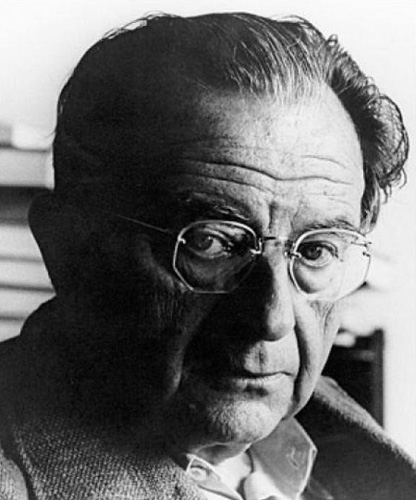The Art of Unselfish Understanding
by Erich Fromm


“Understanding and loving are inseparable. If they are separate, it is a cerebral process and the door to essential understanding remains closed.”
“An experience makes its appearance only when it is being said,” wrote Hannah Arendt in reflecting on how language confers reality upon existence. “And unless it is said it is, so to speak, non-existent.” But if an experience is spoken yet unheard, half of its reality is severed and a certain essential harmony is breached. The great physicist David Bohm knew this: “If we are to live in harmony with ourselves and with nature,” he wrote in his excellent and timely treatise on the paradox of communication, “we need to be able to communicate freely in a creative movement in which no one permanently holds to or otherwise defends his own ideas.” How to do that is what the influential humanistic philosopher and psychologist Erich Fromm (1900-1980) explored in a 1974 seminar in Switzerland, the 400-page transcript of which was eventually adapted into the posthumously published The Art of Listening.
Listening, Fromm argues, is “is an art like the understanding of poetry” and, like any art, has its own rules and norms. Drawing on his half-century practice as a therapist, Fromm offers six such guidelines for mastering the art of unselfish understanding:
1. The basic rule for practicing this art is the complete concentration of the listener.
2. Nothing of importance must be on his mind, he must be optimally free from anxiety as well as from greed.
3. He must possess a freely-working imagination which is sufficiently concrete to be expressed in words.
4. He must be endowed with a capacity for empathy with another person and strong enough to feel the experience of the other as if it were his own.
5. The condition for such empathy is a crucial facet of the capacity for love. To understand another means to love him — not in the erotic sense but in the sense of reaching out to him and of overcoming the fear of losing oneself.
6. Understanding and loving are inseparable. If they are separate, it is a cerebral process and the door to essential understanding remains closed. In the remainder of the The Art of Listening, Fromm goes on to detail the techniques, dynamics, and mindsets that make for an optimal listening relationship, in therapy and in life.
Reprinted from the wonderful blog Brain Pickings by Maria Popova.
